A landmine removal expert has turned her hand to an entirely different way to improve Iraqi lives: planting trees.
Harriet Rix, 31, first travelled to Iraq in 2014. The country, fighting a losing battle with extremist group ISIS, was in a state of crisis and landmines littered the landscape, endangering civilians.
The Oxford biochemistry graduate had been training Iraqis and Syrians to identify unexploded ordnance via video calls, but decided to shed her “incredibly safe and privileged position" behind a computer screen for the realities of dealing with the indiscriminate use of landmines and other explosives.
"I was at Rabban Hormizd monastery as ISIS moved into Mosul. Earlier in the week I’d seen the effects of minefields for the first time up on the border with Iran at Haji Omran, and talked to a man who had lost his leg trying to farm there,” she tells The National in an interview.
“I remember seeing people on the road desperately getting out of Mosul; the fear, the uncertainty, the feeling that this had happened before. Some still haven’t returned, partly because of the threat of explosive remnants of war, others because of the impossibility of making a living.”
On Ms Rix's return in 2017, glimmers of hope were beginning to show when the government declared victory over ISIS. As she made her way back to Mosul, the former ISIS stronghold laid waste in the battle for control, she saw first-hand the tragedy and danger of a postwar city for its inhabitants.
She describes the mine belt "stretching on and on across the hills," as her team cleared unexploded improvised explosive devices (IEDs) to allow the repair of power cables.
UN delegates who paid visits to the mangled city of Mosul after the war described it as “hell on earth”.

Iraq is one of the countries most heavily contaminated by unexploded ordnance on earth. Explosive remnants of war affect more than 3,200 square kilometres of land - twice the area of London, according to the latest report in October by Handicap International, an international NGO that assists victims of wars and refugees worldwide.
The explosive remnants in the northern governorate of Nineveh, home to the cities of Mosul, Sinjar, and Tel Afar, claimed the lives of 700 people and between 2018-20.
A staggering 8.5 million Iraqis live amid these deadly waste-products of the war endured by Iraq against ISIS from 2014 to 2017, while up to 700,000 Iraqis have been internally displaced. In September, a trap killed an Iraqi soldier, south of Mosul. He was from the 16th Infantry Division.
“We’re often talking about bombs triggered by tripwires in hallways, aerial bombs that never exploded resting metres below ground and surrounded by rubble, and children’s toys packed with explosives,” says Alma Al Osta, Handicap's Disarmament and Protection of Civilians Advocacy Manager.






Changing lives through tree-planting
Mosul is a changed city today. Although piles of rubble still line the streets, projects are under way to restore old buildings and people who fled are returning in larger numbers. The city even welcomed Pope Francis, the head of the Roman Catholic church, in March.
The bustling and expensive preparations for the first papal visit to Iraq weren't just security-based. Thousands of trees were planted to beautify Mosul. A social media campaign to stop their removal once the visit was over proved successful.
Ms Rix shares this love of greenery, but also understands the importance of the environment for human survival.
Thanks to her botanist father, she grew up learning about global warming and later studied how landmines could affect the livelihoods of farmers. She was on a minefield outside Mosul when she decided to move into working with trees.
“The farmers nearby said that even before the minefield was there they couldn’t make money off the fields. The soil was degraded and it was blowing or washing away," she says.
She remembers thinking that trees were the solution.
"They would stabilise the soil, encourage rainfall and help the water percolate down through the soil rather than running off the surface,” she says.
“But I decided that I should try to learn about trees in a context I understood first and see what difference I could make in the UK before being arrogant enough to suggest it to anyone in Iraq, so I went back to England and started working with trees.”
Ms Rix, who also obtained a master's degree in philosophy from the University of Cambridge in 2015, is a science and research projects manager at the London-based Tree Council, an NGO established in 1973 to inspire and empower organisations, government and individuals with the knowledge and tools to value and love trees.
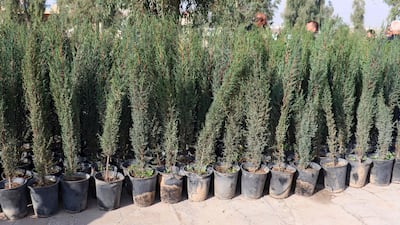
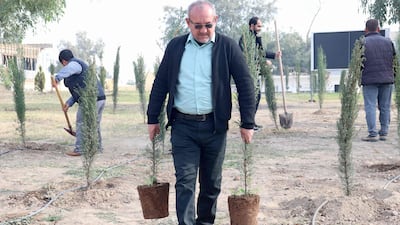
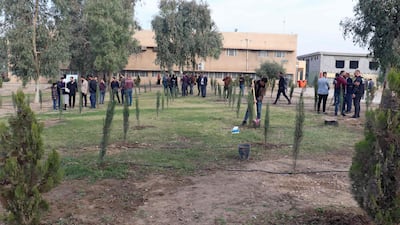
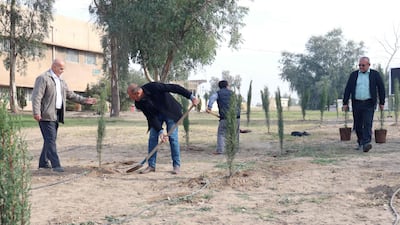
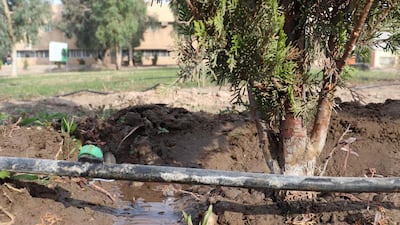
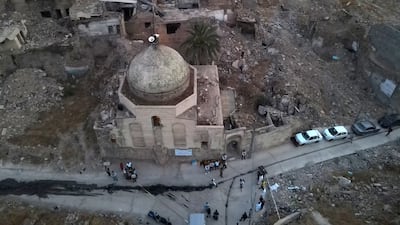
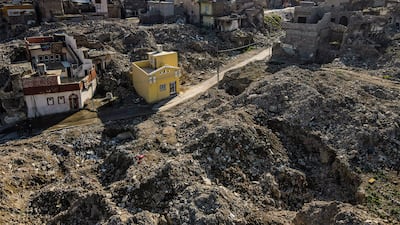
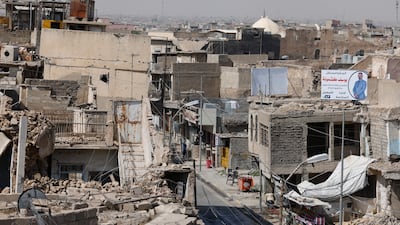
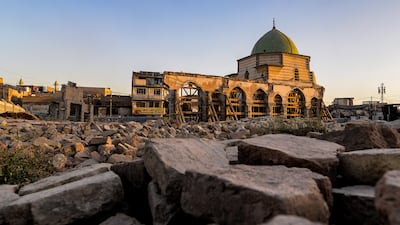
She started this year working with an Iraqi charity based in Irbil called Al Hasaa (Arabic for seeds) to plant thousands of oak trees across Iraq Kurdistan and northern areas in the country, based on a blueprint calling for "the right tree, in the right place, for the right reason" in the continuing fight against climate change.
“What you can plant in the UK or Europe isn’t necessarily fit for Iraq, which has its own native trees and plants,” says Ms Rix.
“You think, it's very simple, you have some money, you buy some trees, you find an area of land, you plant the trees and then you watch them grow. But it’s not so."
Possibly the most counterproductive projects have been those that have led to wildfires, she says.
"Pines and eucalyptus are excellent examples of trees people plant when they want quick reforestation or afforestation, not realising that they contain resins that encourage fires and this has had tragic consequences.”
In June 2017 in Portugal, 64 people died and 254 were injured after forest fires spread through thick plantations. The amount of carbon released into the atmosphere by the fires was enormous.
The Mosul mulberry, the Syrian ash tree, the Euphrates poplar and the Aleppo pine are among Ms Rix’s favourite trees in the Middle East.
“People say that Darwin altered the world’s conception of time; he allowed people to reach deep back into the past and see themselves as a blip on a scale of development and change, which also extended far into the future. Trees give me a similar feeling,” she says.
For Ms Rix, trees give her hope and help mitigate the toll earlier missions to Mosul took on her mental health.
“I don’t like the sight of helicopters any more,” she says.

